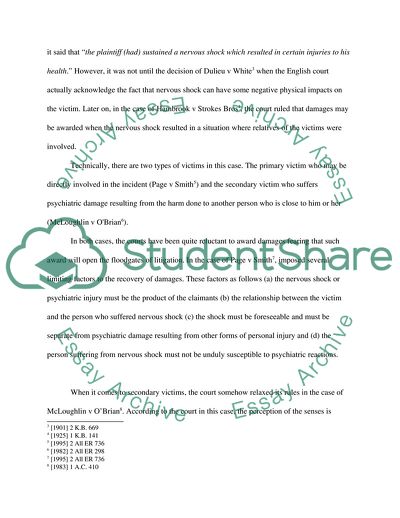Cite this document
(Understanding the Effects of the Floodgates Argument On Cases Coursework Example | Topics and Well Written Essays - 1250 words - 2, n.d.)
Understanding the Effects of the Floodgates Argument On Cases Coursework Example | Topics and Well Written Essays - 1250 words - 2. https://studentshare.org/engineering-and-construction/1731895-law-of-tort
Understanding the Effects of the Floodgates Argument On Cases Coursework Example | Topics and Well Written Essays - 1250 words - 2. https://studentshare.org/engineering-and-construction/1731895-law-of-tort
(Understanding the Effects of the Floodgates Argument On Cases Coursework Example | Topics and Well Written Essays - 1250 Words - 2)
Understanding the Effects of the Floodgates Argument On Cases Coursework Example | Topics and Well Written Essays - 1250 Words - 2. https://studentshare.org/engineering-and-construction/1731895-law-of-tort.
Understanding the Effects of the Floodgates Argument On Cases Coursework Example | Topics and Well Written Essays - 1250 Words - 2. https://studentshare.org/engineering-and-construction/1731895-law-of-tort.
“Understanding the Effects of the Floodgates Argument On Cases Coursework Example | Topics and Well Written Essays - 1250 Words - 2”. https://studentshare.org/engineering-and-construction/1731895-law-of-tort.


